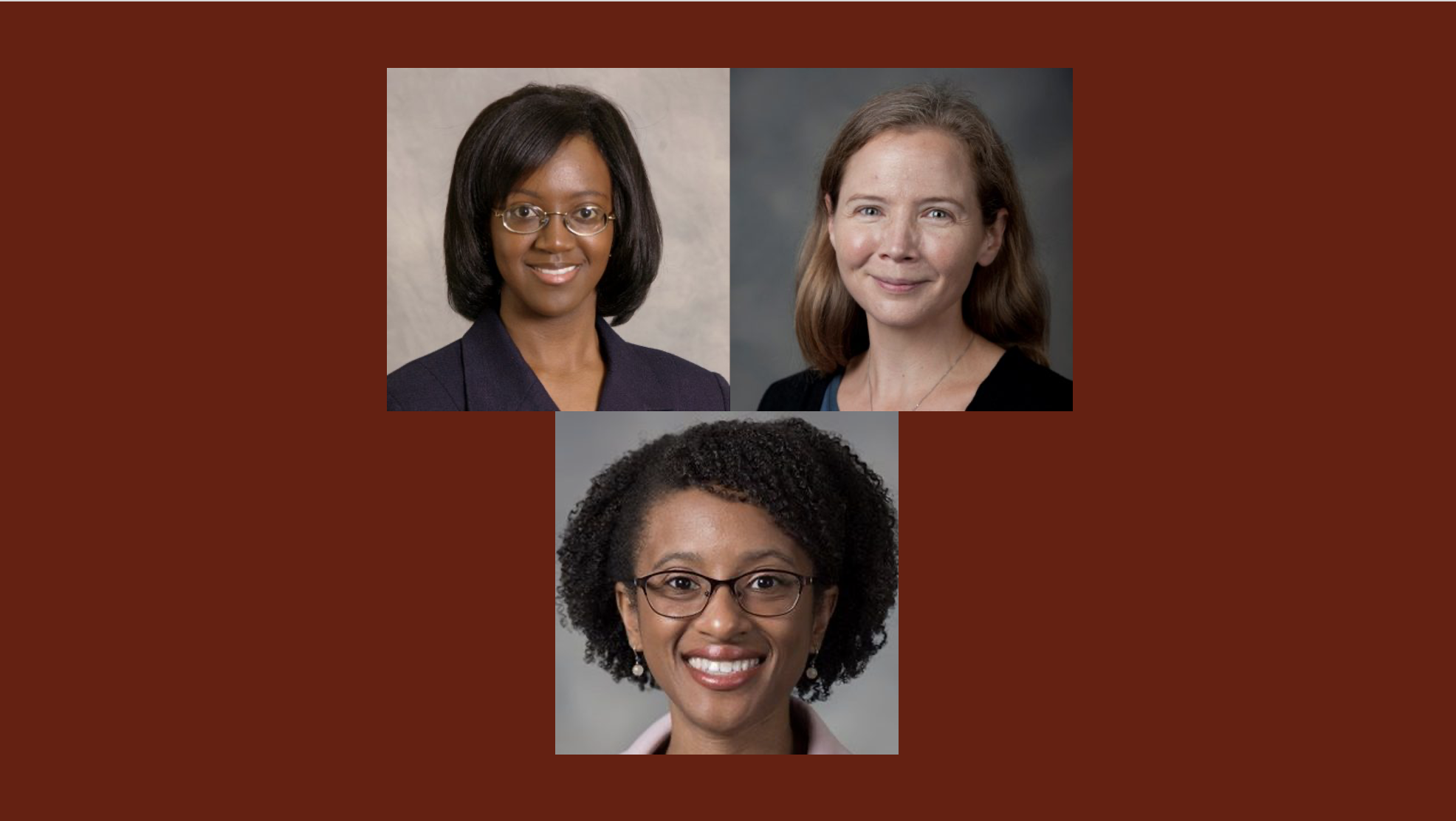The initiative seeks to create a pipeline for STEM students at Alamance Community College to seek bachelor's degrees at Elon.
With the demand for STEM-related careers being at an all-time high nationwide, Elon University collaborators have developed a plan to help create more professionals in those fields and have received significant backing from the National Science Foundation to make that happen.
The project aimed at building a pathway and devising programming for students to transfer from the Early College Program at Alamance Community College to Elon to pursue bachelor’s degrees in biology, chemistry, computer science, engineering, environmental studies, mathematics or physics. It is supported by a $142,238 NSF and is led by Associate Professor of Engineering Sirena Hargrove-Leak, Associate Professor of Biology Jen Hamel and Assistant Professor of Biology Jessica Merricks. Debra McCusker, cybersecurity lead instruction at ACC, is also a co-collaborator for the project.
“We envision planning an approach that will boost transfer student’s ability to earn STEM degrees, and we want to focus on their social, navigational and aspiration capitals,” said Sirena Hargrove-Leak, associate professor of engineering. Social capital refers to ability to build a network of people and resources in a community; navigational capital denotes ability to maneuver in a community; and aspirational capital focuses on ability to dream big even though the pathway to achieve the dream seems uncertain.
“We also want to develop more inclusive STEM environments by building community and training faculty, and study how these interventions might impact student’s ability to persist to graduation,” she said.
The award from the NSF is a two-year planning grant that will begin on Jan. 1, 2022. Hargrove-Leak said they will have those two years to develop their approach and upon completion, potentially, receive additional funding to execute that approach.
The funding is a part of the NSF’s S-STEM program, which provides scholarships to low-income, high-achieving students. A strategy for addressing the lack of low-income, high-achieving STEM professionals is to support the retention and graduation of students who have strong academic potential and high demonstrated financial need.
They will assess the needs of transfer students and STEM faculty at the partnering institutions, which is expected to reveal that transfer students would benefit from support in developing social, navigational and aspirational capital. Hargrove-Leak said they also expect to find that misalignments in faculty and student expectations contribute to low retention and graduation rates in STEM.
“Our thinking is, if we can begin to partner with ACC Early College Program and with colleagues who are teaching over there, we might be able to essentially build a pathway for these students who often have demonstrated interest in STEM,” Hargrove-Leak said.
This project is not directly linked to the “It Takes a Village” project, a partnership between Elon tutors and Alamance County teachers to improve the academic attainment of elementary students. However, Hargrove-Leak said that she learned from the wisdom of Village Project founder and Vice President for Access and Success Jean Rattigan-Rohr and from the structure of the Village Project.
“This is a big deal because it’s such a competitive award,” Hargrove-Leak said.
Merricks said she wanted to work on this project because the initiative fits perfectly with her area of expertise of helping marginalized groups gain access to STEM educations. She also said it was the educational component of the project which was a large attraction to her.
“My job on the project is to evaluate how well those programs work, how well students received those programs and how effective are those programs at helping students bridge that gap between community college and four-year institutions,” Merricks said.
Merricks also highlighted the importance of the role Alamance Community College will play in this effort of creating a pipeline for community college STEM students.
“The grant is housed here at Elon, but we’re very excited that this is a partnership between Elon and ACC. They’ve been involved from the beginning to help us produce this program and they are very much excited about the endgame, which would be scholarships for their students,” she said.
According to Jen Hamel, this initial assessment will indicate how many students will be a part of each cohort. The plan is to have several cohorts after two years and then work on implementing them into the university indefinitely.
“We would be applying to fund two to three cohorts of students through their matriculation at Elon,” Hamel said. “Then we would hope to find ways to institutionalize the program at Elon.”
Hamel said that she came back to school to seek her biology degree as a non-traditional, non-degree seeking student and said she understands the importance of equity in education.
“It resonates with me personally, to try and build inclusive pathways to support STEM learners, with a variety of identities, who could come be part of the community at Elon,” she said.
In the several years that she has been collaborating with Hargrove-Leak on this effort, Hamel said she is excited to have it set in motion. “We’re just thrilled that we get to start on this work,” Hamel said.



